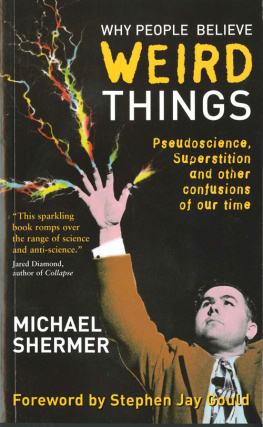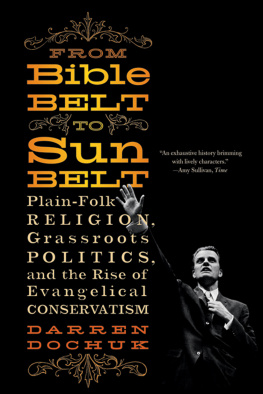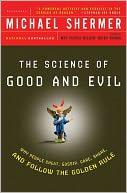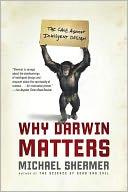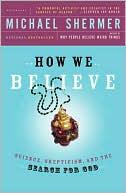Elizabeth Tandy Shermer - Sunbelt Capitalism
Here you can read online Elizabeth Tandy Shermer - Sunbelt Capitalism full text of the book (entire story) in english for free. Download pdf and epub, get meaning, cover and reviews about this ebook. year: 2013, publisher: University of Pennsylvania Press, Inc., genre: Politics. Description of the work, (preface) as well as reviews are available. Best literature library LitArk.com created for fans of good reading and offers a wide selection of genres:
Romance novel
Science fiction
Adventure
Detective
Science
History
Home and family
Prose
Art
Politics
Computer
Non-fiction
Religion
Business
Children
Humor
Choose a favorite category and find really read worthwhile books. Enjoy immersion in the world of imagination, feel the emotions of the characters or learn something new for yourself, make an fascinating discovery.

- Book:Sunbelt Capitalism
- Author:
- Publisher:University of Pennsylvania Press, Inc.
- Genre:
- Year:2013
- Rating:5 / 5
- Favourites:Add to favourites
- Your mark:
- 100
- 1
- 2
- 3
- 4
- 5
Sunbelt Capitalism: summary, description and annotation
We offer to read an annotation, description, summary or preface (depends on what the author of the book "Sunbelt Capitalism" wrote himself). If you haven't found the necessary information about the book — write in the comments, we will try to find it.
Sunbelt Capitalism — read online for free the complete book (whole text) full work
Below is the text of the book, divided by pages. System saving the place of the last page read, allows you to conveniently read the book "Sunbelt Capitalism" online for free, without having to search again every time where you left off. Put a bookmark, and you can go to the page where you finished reading at any time.
Font size:
Interval:
Bookmark:
Sunbelt Capitalism
POLITICS AND CULTURE IN MODERN AMERICA
Series Editors: Margot Canaday, Glenda Gilmore, Michael Kazin,
and Thomas J. Sugrue
Volumes in the series narrate and analyze political and social change in the broadest dimensions from 1865 to the present, including ideas about the ways people have sought and wielded power in the public sphere and the language and institutions of politics at all levelslocal, national, and transnational. The series is motivated by a desire to reverse the fragmentation of modern U.S. history and to encourage synthetic perspectives on social movements and the state, on gender, race, and labor, and on intellectual history and popular culture.
Phoenix and the Transformation of American Politics
Elizabeth Tandy Shermer

Copyright 2013 University of Pennsylvania Press
All rights reserved. Except for brief quotations used for purposes of review or scholarly citation, none of this book may be reproduced in any form by any means without written permission from the publisher.
Published by
University of Pennsylvania Press
Philadelphia, Pennsylvania 19104-4112
www.upenn.edu/pennpress
Printed in the United States of America on acid-free paper
10 9 8 7 6 5 4 3 2 1
Library of Congress Cataloging-in-Publication Data Shermer, Elizabeth Tandy.
Sunbelt capitalism : Phoenix and the transformation of American politics / Elizabeth Tandy Shermer. 1st ed.
p. cm. (Politics and culture in modern America) Includes bibliographical references and index.
ISBN 978-0-8122-4470-0 (alk. paper)
1. Cities and townsArizonaPhoenixGrowth. 2. Phoenix (Ariz.)CommerceHistory20th century. 3. Phoenix (Ariz.)Economic conditionsHistory20th century. 4. Phoenix (Ariz.)Politics and governmentHistory20th century. 5. Phoenix (Ariz.)Social conditionsHistory20th century. 6. ConservatismArizonaPhoenixHistory20th century. I. Title. II. Series: Politics and culture in modern America.
HT384.U62A68 2013
307.7609791'73dc23
2012023970
Dedicated to the families we choose
Few Northeasterners realize the new prominence of the South and West or appreciate that a new political era is in the making.
Kevin P. Phillips, The Emerging Republican Majority, 1969
In 1969, Kevin Phillips earned national recognition for The Emerging Republican Majority, which reconsidered a persistent set of century-old regional voting patterns. In this celebration of Richard Nixons 1968 electoral triumph, Phillips concluded that the Republicans victory symbolized the overthrow of an obsolescent liberal ideology. While public memory of the book has largely faded, Phillipss identification of a Sun Belt Phenomenon has had a lasting impact. In just five pages, the author defined a region that captured popular and scholarly attention for thirty years. Phillips, an amateur statistician turned White House aide, argued, as of the present... the huge postwar white middle-class push to the Florida-California Sun country (as well as suburbia in general)seems to be forging a new, conservative political era in the South, Southwest and Heartland. At the heart of this phenomenon were booming metropolises, which he described as centers of commerce, light industry, military preparedness, defense production and space-age technology, vocational seedbeds of a huge middle class... a century removed from the Allegheny-Monongahela Black Country and the dun-colored mill canyons of the Merrimack.
Phoenix, Arizona, clearly exemplified, as journalists Peter Wiley and Robert Gottlieb noted, the prototypical Sun Belt city. The railroad hub had once been smaller in population than rival Tucson and also a third of the size of El Paso, the Southwests largest city at the turn of the twentieth century. In these years, agriculture, mining, ranching, and tourism had structured Phoenixs economy. After World War II, the Valley of the Sun
There was nothing inevitable about the towns spectacular growth. The activism, agency, and ideas of a well-defined mid-century cohort of local business elites and high-level industrialists were responsible for this political, economic, and social transformation. This subset of corporate executives and managers, who would emerge as a principal force in the postwar conservative movement, opposed the regulatory liberalism that Franklin Delano Roosevelts administration embodied. Much attention has been devoted to their antiNew Deal politics at the national level, but they may well have been more influential in states and small cities, especially when they sought to escape regulations, taxes, and unions by dispersing their operations beyond the northeastern, midwestern, and Pacific Coast industrial strongholds. In the severely underdeveloped, commodity-dependent, Depression-ravaged South and Southwest, residents were desperate for investment, particularly local businessmen, who like outside investors were most often white men (commonly referred to as Anglos in the West). The major store-owners and professionals in these regions small towns sought to diversify the local economy and build their fortunes. Yet their industrial recruitment efforts did not represent a grassroots movement. They were in fact the municipal grass tops, as sociologist Philip Selznick termed the local elites whom liberals empowered to oversee the New Deal at the community level. The small town gentry, the peripherys grasstops, were situated between the local working and middle classes and the elite investor contingent who resided in the countrys manufacturing belt. This stratum of community merchants and professionals were often educated in elite eastern or California schools, belonged to national organizations of retailers, lawyers, or newsmen, and negotiated directly with leading manufacturers or bankers who sold products or made loans throughout the South and Southwest.
Local, regional, and national businessmen involved in these campaigns never championed a crude antistatism during the New Deal, World War II, or the postwar period. They instead embraced government power and planning in order to reconstruct a developmental state that would privilege industry by insulating it from the electorate, dismantling social welfare provisions, weakening organized labors strength, curbing regulatory restrictions, and reversing the New Dealera tax shift from homeowners to businesses. By the mid-1950s, industrial-relations experts, boosters, and CEOs considered such policies a part of southern and southwestern cities investment environment, their so-called business climate. The requirements for being business friendly expanded continuously because interregional competition for lucrative, high-skill, high-tech investment enabled manufacturers to demand more tax concessions, regulatory giveaways, and state financial supports. Guarantees even grew to include publicly financed manufacturing facilities, roads, utilities, parks, subdivisions, and schools to serve industrialists who needed to attract and retain a well-trained workforce.
The business climate ideal, and the corporate welfare state that it required, represented a challenge to mid-century liberalism. Competition to generate the most favorable conditions for industry inspired a faith in the conglomerations capacity to generate employment opportunities, which simultaneously subverted local needs for tax revenue, social investment, or assurance that new jobs would be good and permanent. Regional rivalries also eroded the legitimacy and potency of liberal economic doctrine in the northeastern, midwestern, and Pacific Coast manufacturing strongholds where local governments began to mimic Sunbelt legislation in the late 1950s. As a result, mid-century investment campaigns did diversify the southern and southwestern economies but nonetheless failed to engender the social and political liberalism which New Dealers had expected to accompany the urbanization and industrialization of these hitherto underdeveloped regions.
Next pageFont size:
Interval:
Bookmark:
Similar books «Sunbelt Capitalism»
Look at similar books to Sunbelt Capitalism. We have selected literature similar in name and meaning in the hope of providing readers with more options to find new, interesting, not yet read works.
Discussion, reviews of the book Sunbelt Capitalism and just readers' own opinions. Leave your comments, write what you think about the work, its meaning or the main characters. Specify what exactly you liked and what you didn't like, and why you think so.


